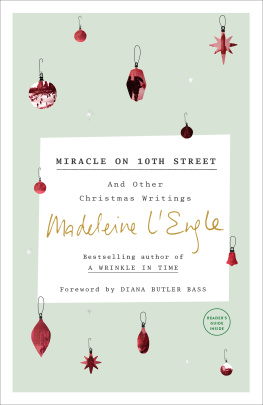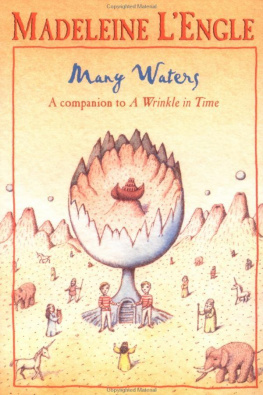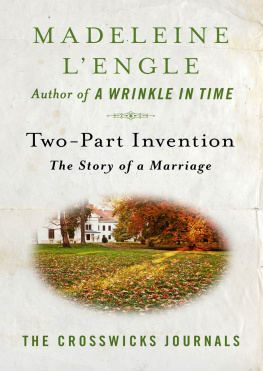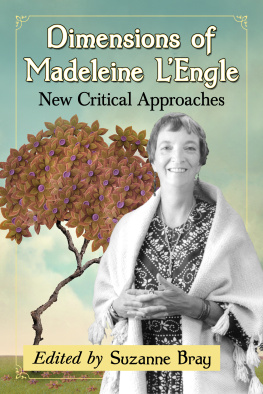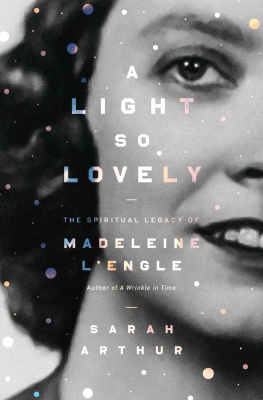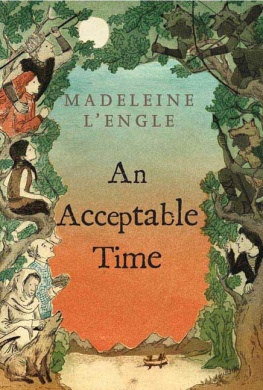1 The Night Is Far Spent
New York.
Two oclock in the morning. A thin, chill November rain is falling. I stand at the dining-room window, holding a comforting mug of hot bouillon, and look out at the never-wholly-asleep city. A taxi moves slowly along West End Avenue. A young woman walks down the middle of 105th Street with a very large Great Dane. My Irish setter is asleep in the bedroom; he knows that it is much too early to get up.
I enjoy these occasional spells of nocturnal wakefulness, and I am never awake alone. Across West End Avenue there is an apartment building where the eleventh-floor windows are always lit, no matter what time it is. This night, in another building, someone is studying by a single light bulb suspended from the ceiling. The Hudson River is visible through television aerials and between two tall apartment buildings on Riverside Drive. Ours is a restricted view, but it is a view, nevertheless, and I love it. There is a small ship, a freighter, I think, moving slowly along the dark water, its lights both warmly greeting and mysterious. What looks like a star grows brighter and reveals itself to be a plane coming in to land at La Guardia; but there is a star left behind in the wake of the plane, a pale city star.
I sip hot bouillon and feel relaxed and at peace at this beginning of a new yeara new year for me. I have had another birthday, and this is always like opening a brand-new journal to the first page, or putting a clean sheet of paper into the typewriter as I start a new book; it is all ahead of me, clear and bright, the first smudges and mistakes not yet made. I know that they will come, and soonI dont think Ive ever typed a full page without making at least one error; however, beginnings are always exciting and full of hope.
The beginning of my personal new year comes as the Christian Churchs new year, Advent, begins, the four weeks before Christmas. The Jewish New Year is over; it is not yet time for the secular New Year or the Buddhist New Year; the academic year is already well started. Has there ever been a culture or a religion where there has not been a special day to mark the beginning of a new year? I still function more in terms of the academic year than any other, and probably will continue to do so even when we no longer have children in school or college.
A new year can begin only because the old year ends. In northern climates this is especially apparent. As rain turns to snow, puddles to ice, the sun rises later and sets earlier; and each day it climbs less high in the sky. One time when I went with my children to the planetarium I was fascinated to hear the lecturer say that the primitive people used to watch the sun drop lower on the horizon in great terror, because they were afraid that one day it was going to go so low that it would never rise again; they would be left in unremitting night. There would be weeping and wailing and gnashing of teeth, and a terror of great darkness would fall upon them. And then, just as it seemed that there would never be another dawn, the sun would start to come back; each day it would rise higher, set later.
Somewhere in the depths of our unconsciousness we share that primordial fear, and when there is the first indication that the days are going to lengthen, our hearts, too, lift with relief. The end has not come: joy! and so a new year makes its birth known.
In the Christian Church these weeks leading up to Christmas, this dark beginning of our new year, is also traditionally the time of thinking of the last things, of the eschaton, the end.
The night is far spent. The day is at hand.
That day when all nights will be spent, when time will end: we all know its coming. Scientists know it, and tell us the various ways that it could happen, but as of now they arent predicting when. Various religious groups have predicted the end of the world off and on for hundreds of years. Whenever one of these groups tells us that Doomsday is going to come at midnight on a certain day, I always feel a little queasy. Maybe this time theyre right. It has to happen sometime.
It was a long time before I could begin to think of this ending of all known things, all matter, the stars in their courses, music, laughter, sunrise, daisies and dynasties, starfish and stars, suns and chrysanthemums, as being in any way something to look forward to with joy and hope. It was a long time before I could turn my thoughts to the eschaton without terror. Long before Id heard about the atom bomb or the hydrogen bomb, or fission or fusion, I feared the end of the world in much the same way that I fear a nuclear holocaust. And the description of the last day in the New Testament sounds very much like atomic devastation: The present sky and earth are reserved for fire. The Day of the Lord will come like a thief, and then with a roar the sky will vanish, the elements will catch fire and fall apart, and the earth and all that it contains will be burned up.
A nuclear holocaust would probably mean the end of human life on planet earth, but not the rest of the solar system, or the galaxy, or any of the hundreds of billions of other galaxies in the universe. And nuclear warfare would be mans pride and folly rather than Gods anger.
The end of the world in the eschatological sense has nothing to do with pride or anger and it is not just the end of this one planet, but of all planets, all solar systems, all galaxies.
And what then? Is that it? Annihilation?
No. Annihilation might follow an intergalactic nuclear battle, but annihilation is the opposite of what the eschaton is about. It is not nearly so much a going as a coming, an ending as a beginning. It is the redemption, not the destruction, of Creation. Weve heard the phrases so often and from so many denominations that theyve become distorted until the meaning is nearly bled from them:
The Second Coming. The Coming of the Kingdom.
What does that mean?
My son-in-law Alan was asked once by a pious woman if our feet would be wafted from the earth, at the time of the Second Coming, before Jesuss feet touched ground. Ouch. That kind of literalism is not what its about.
For the simple fact is that we are not capable of knowing what its about. The Coming of the Kingdom is creation coming to be what it was meant to be, the joy and glory of all creation working together with the Creator. In literal language none of it makes much sense, and I can only go once again to my adolescent analogy of the planet on which all sentient life was sightless. If nobody could see, other senses would take over, and everybody would get along perfectly well. But if you tried to explain the joy of sight to anybody on that planet you couldnt do it. Nobody could understand something so glorious and so totally out of an eyeless frame of reference. Multiply that gap between a blind planet and a seeing one a billion times and well still be far from understanding the difference between creation, now, and creation in the fullness of the kingdom. But I am slowly learning that it is something to be awaited with joy and not terror.


